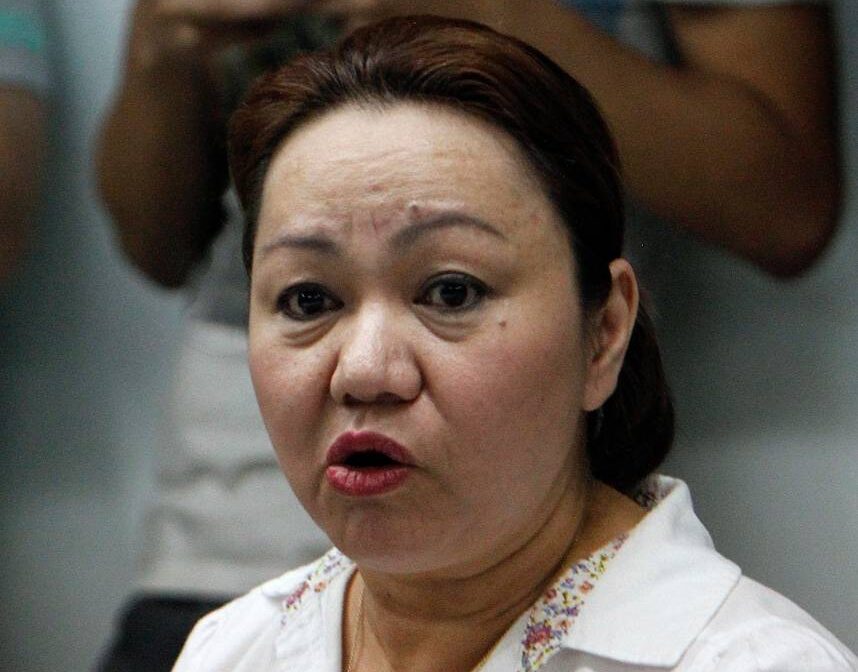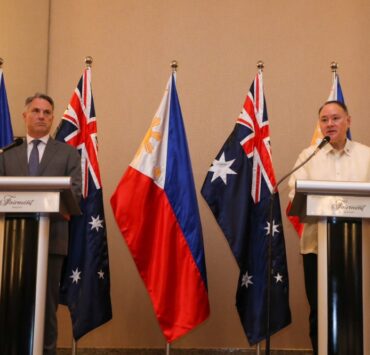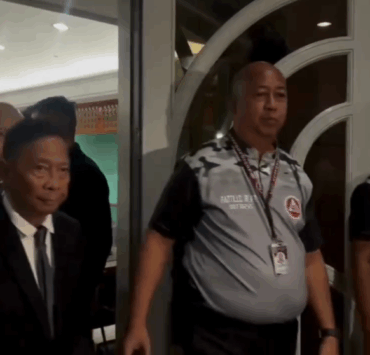Napoles again convicted; 3 others also guilty in ‘pork scam’ case

Janet Lim-Napoles, the so-called brains behind the pork barrel scam that prompted a series of criminal charges against lawmakers and other government officials more than a decade ago, got another set of conviction from the Sandiganbayan.
This time, it is for the case involving the diversion of the P7.55-million Priority Development Assistance Fund (PDAF) of former Davao del Sur Rep. Marc Douglas Cagas IV.
The Sandiganbayan’s Special Third Division also convicted Dennis Cunanan, the former deputy director general of the defunct Technology Resource Center (TRC); Maria Rosalinda Lacsamana, former TRC group manager; and Rhodora Mendoza of the now-abolished state firm National Agribusiness Corp.
The TRC was identified as one of the agencies that implemented projects under PDAF in 2007 and 2008.
In a 149-page decision promulgated on Friday, the Sandiganbayan found Napoles guilty of two counts of graft and another two counts of malversation. Cunanan, Lacsamana and Mendoza were convicted of one count each of graft and of malversation.
Napoles was sentenced to a prison term of 12 to 20 years for the graft conviction and 20 to 34 years for malversation. She is serving multiple prison sentences at the Correctional Institution for Women in Mandaluyong City for earlier convictions related to PDAF misuse.
Cunanan and Lacsamana will serve six to 10 years for graft and 10 to 14 years for malversation. Mendoza was also sentenced to six to 10 years of imprisonment for graft and 10 to 18 years for malversation.
‘Nonexistent’
The case stemmed from Cagas’ endorsement and selection of the People’s Organization for Progress and Development Foundation Inc. (POPDFI) and Social Development Program for Farmers Foundation Inc. (SDPFFI), both nongovernmental organizations (NGOs) operated and controlled by Napoles, as “project partners” for the lawmaker’s “agricultural production packages” for his district in 2007 and 2008.
POPDFI received P2.7 million from Cagas’ PDAF, while P4.85 million went to SDPFFI, according to case records.
State prosecutors noted that the processing of the PDAF had allowed Napoles and the others to “take possession and thus misappropriate PDAF-drawn public funds, instead of implementing the PDAF-funded projects; which turned out to be nonexistent.”
The selection of the organizations for the projects did not undergo public bidding, they added.
In the case of POPDFI, the court ordered Napoles, Cunanan and Lacsamana to pay a P2.7-million fine and indemnify the government with the same amount, plus interest. For SDPFFI, the court ordered Napoles and Mendoza to pay a P4.85-million fine and return the same amount to the government, also with interest.
The Sandiganbayan ruled that although the NGO could “validly implement” the PDAF projects, the accused should have still considered the “indispensable requirement” for public bidding.
The prosecution, it said, “satisfactorily established the extent of the participation” of Napoles, Cunanan, Lacsamana and Mendoza in the scheme.
Other accused
The court, however, clarified the status of the other accused, particularly Cagas and former Energy Regulatory Commission Chair Zenaida Ducut.
As to Ducut, the court said it suspended proceedings relating to her after she was found to be “incompetent to stand trial” following a series of neurological and psychological examinations.
Regarding Cagas, the court cited its approval of the plea bargaining agreement dated Sept. 10, 2021, agreeing to lesser charges.
Cagas was subsequently rearraigned in May 2022.
The court said that the General Appropriations Act for fiscal years 2007 and 2008 noted that “no specific NGO was named as an implementing agency of PDAF projects” and that only government agencies, such as the TRC and the Department of Agriculture, were authorized to implement them.
“As a general rule, all procurement shall be done through competitive public bidding,” read the decision penned by Associate Justice Ma. Theresa Dolores Gomez-Estoesta. Associate Justices Zaldy Trespeses and Ronald Moreno, chair of the Special Third Division, concurred.
“However, when an appropriation law earmarks an amount for projects to be specifically contracted out to NGOs, it is the intent of Congress to give due preference to NGOs. This exception is inapplicable herein since there is neither an appropriation nor an ordinance earmarking the amount of the PDAF for the implementation of the NGOs,” the antigraft court said.
The decision says the transactions involved in the case will have to fall under the general rule, which includes the conduct of a competitive public bidding.
“In the instant cases, the evidence clearly confirms the fact that the herein nongovernmental organizations concerned, namely: POPDFI and SDPFFI, were selected on the basis alone of the endorsements of accused Cagas,” the court added.
‘Evident bad faith’
It also pointed out how the two NGOs selected by Cagas for the PDAF projects were fully controlled by Napoles, since the latter selected the stockholders, directors and incorporators of the NGOs.
The court said Napoles also provided the funds used by the NGOs, noting that she had full control over the money and bank transactions.
“Thus, with the foregoing conclusions, accused Napoles acted with evident bad faith and in conspiracy with the accused public officials and employees to defraud the government through nonexistent NGOs and projects,” the court said.

















